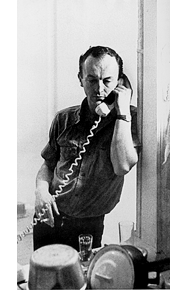The husband recently scolded me for reading the Wikipedia episode guide for Twin Peaks as we neared the end of the series. I argued that it, in no real way, affected my enjoyment of the show because it is not always the story line that is surprising, but the way in which it is presented to the viewer. He disagreed vehemently.
I still stand by my point—-take any novel, particularly 20th century novels. Portrait of the Artist as a Young Man, Naked Lunch, Tropic of Cancer, anything by Beckett, Kerouac, etc etc. Now ask yourself: Is it the plot or the method in which the story is told that compels you to continue reading?
This is particularly telling because I’ve been brushing up on books I should be familiar with for a literature exam. I’ve read a solid 90% of the suggested list, but there are always more and more “classics” that rear their heads on suggested reading lists. I don’t have time to read them all, so I’ve done perhaps the most dastardly thing an academic could do: read the boiled down plot summaries, character analysis and contextual information.
This morning I read about 10 of these “cheats” and found myself gloriously entertained, curiously following the paragraphs of quick moving action and character development. I was amazed at how incredibly similar the plot movements are for so many of these books—-cross referencing other books in my brain and already composing the “select two texts from this list and analyze” essay prompts.
It makes me want to write. I don’t really consider myself a writer anymore, but this kind of activity inspires me. Yet I know that ultimately, I’m focused on plot. The movement of action and development. That I can put forward the pertinent information, but become incredibly trite when going for effect. I’m no good at spinning the story and letting it slowly uncurl and stretch across the pages. I rush. I peek ahead.
Tell me where the story is going. Then I can show you how to get there.
Monday, June 29, 2009
Subscribe to:
Post Comments (Atom)



No comments:
Post a Comment